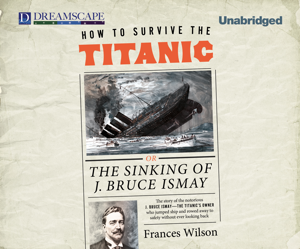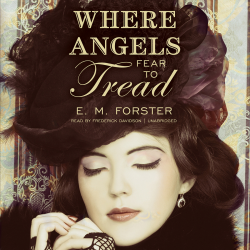
Samantha Swift and the Mystery From Atlantis (2010 - Windows PC)
I've been trying to approach hidden object games with less cynicism lately - after all, I keep buying the things, so something must be bringing me back to them. I bought the latter two Samantha Swift titles when Amazon put them on sale during a time when a family emergency was winding down and I needed to play something to help me relax. I thought that might have been the reason I had almost no memory of anything from this game when I tried to recall it for a review.
So, I replayed it again right before writing this, and I even bumped it up to the Expert difficulty setting, which is timed and provides fewer hints. But even with those limitations, I blew through the game in about an hour. It seems ridiculously short and easy, even compared to the earlier two games in the series. There are puzzles that pop up now and then between the hidden object scenes, but they're all complete no-brainers.
The world of Samantha Swift is as wonderfully beautiful and messed-up as ever - her kleptomaniacal approach to archaeology is still to show up after someone made a huge mess and pick through it, and the MacGuffin du Jour is an "ancient" See 'N' Say. If she can't find enough sled dogs for her team, wooden ones and drawings of them will do, and if she doesn't find the Totem pole she's looking for, she'll take a chainsaw and make one from a log.
And yet, somehow this installment just doesn't seem as memorable as the others.
Rating: 2.5/5




Jeremy Fink and the Meaning of Life (2011 - Streaming Video)
Okay, what on earth is it with these movies where two characters go on an adventure and one of them is a complete wet blanket? Harold and Kumar Go To White Castle was like that and I have it on good authority that Wedding Crashers is, too. Jeremy Fink receives a box from his deceased father on his 13th birthday that requires a bunch of lost keys to open, yet he agonizes over and resists his female friend's notion to go searching the city for them at every opportunity. This, despite that he has the Most Permissive Mother Ever! Yes, I get that the reason he's afraid to go very far is because his father died in a car accident, but that seems more like an excuse to be trapped with a character who keeps attempting to drain the fun from the plot than anything else.
I must've misread this movie's description, because I thought Jeremy was actually going to use a time machine to help find the keys (well, that, and all the "time travel" imagery in the promotional art there). He is working on inventing a time machine, and it does help out (though in a more abstract way), but there is no actual time travel. However, if he had really used time travel, it would've been no less preposterous than the real ending.
Rating: 2/5

The Shadow (1994 - Streaming Video)
I can be forgiving of superhero/comic book movies for being a little silly, but nothing about this movie's plot makes any sense. The moral of it seems to be: If you're trying to reform unsavory/villainous type people, it's probably not a good idea to teach them the power of mind control. Of all people on the planet you could give this power, why the megalomaniacal descendant of Genghis Khan?
Khan has himself shipped from Asia to New York in a fancy sarcophagus. Whatever works, I guess. But then how did all his Mongol warriors get there, too? Were they also shipped in coffins, or did Khan just want to make a grand entrance?
Khan has a type of legendary metal that can be used to make an atomic bomb, but only if a very specific device is built to cause an implosion or something (didn't quite understand this part). It just so happens that the father of The Shadow's love interest is inventing that very device, which makes no sense since it requires a metal that isn't thought to exist to function.
It could make sense...if Khan was the one secretly funding the project. But no, it turns out he doesn't even know the device exists until he has some kind of seance with a morphing wall that tells him where to find it. Now, it makes even less sense that he came to New York, since he didn't even know that's where the weapon would be until now. He really didn't come all that way, bring a small army, and set up an elaborately Mongolian-themed base just to ask Alec Baldwin to join him, did he?
This movie is also resolved by the Shadow using a super power that had not been seen, used, or established before that point. I could also mention the bizarre "Jedi Mind Trick" scenes with Jonathan Winters, how the finale is your standard "countdown till the bomb explodes" scenario, and how the best thing about the movie is the Taylor Dayne end credits song, but you get the idea.
Rating: 2.5/5




How to Survive the Titanic or the Sinking of J. Bruce Ismay
Author: Frances Wilson; Reader: Robin Sachs
(Audiobook & Original Book - 2011)
This book is way more of a biography of J. Bruce Ismay, the chairman of the White Star Line company that owned the Titanic, than anything else. He was on the ship's maiden voyage and famously survived the disastrous sinking, which created a lot of controversy and ultimately caused him to go into exile, though the book talks at length about how he appeared to be a shy and socially awkward type to begin with, owed in great part to his father's method of rigid upbringing.
There's a common belief that Ismay was responsible for the disaster because he was overheard saying he wanted to beat some speed record and arrive in New York early. The book purports that it was unlikely he ever said that because, aside from it not making much sense for several explained reasons, only one person claimed to have heard it, and it's not known how reliable her testimony was. But what it does stress is that he had been given a warning about the icebergs in the area, which he stuffed in his pocket, and he either forgot about it or decided not to do anything about it. In that sense, he does bear some responsibility.
It's a fascinating read, but the author spends way too many chapters comparing Ismay to the Joseph Conrad character and story, Lord Jim. I'm not joking, one chapter is pretty much a summary of the entire Lord Jim story. So, if you haven't read it, congratulations, you've just had the whole thing spoiled.
Rating: 3.5/5

Titanic: A Survivor's Story
Author: Colonel Archibald Gracie; Reader: Frederick Davidson
(Audiobook - 2007; Original Book - 1913)
While there is some merit and historical value to a book about the Titanic that was written by an actual survivor of its sinking, this book is not without problems. Colonel Archibald Gracie survived on an overturned lifeboat, wrote this book, but died of diabetes complications in his legs brought on by his time spent in the subzero water before it was published. Eventually, it was published posthumously, but it's likely he never actually finished writing and/or editing it.
One problem is that Colonel Gracie seemed to be xenophobic, which I guess is not surprising for the times, but he refers to every person who couldn't speak English or speak it well as a "stowaway". I'm almost certain this book started the (false) rumor that some men sneaked aboard lifeboats by dressing up as women, since that's his theory for how some of the "foreigners" got on them.
He also was a staunch believer that the Titanic sunk in one piece (proven wrong on its discovery in 1985) and reiterates this point at almost every opportunity. His book consists of interviews with other survivors, and when they get to the part about the boat's sinking, he always appends, "in one piece", whether or not they actually said it. I guess it was a matter of him believing his own eyes (it broke up under the water, so it may have appeared to some witnesses to have gone down whole), but I still have to wonder what benefit it was to him for it to have sunk in just one piece instead of two.
Another problem, which editing may have solved, is that he first tells his own account of what happened before, during, and after he got aboard the lifeboat...but then there's a bunch of interviews with people from other lifeboats who pretty much say the same things. So, it's like you're getting the same story over and over again from a slightly different point of view each time, but with Gracie's editorialized opinions mixed in.
It may still be of interest to Titanic buffs, but you have to take it with an iceberg-sized grain of salt.
Rating: 3/5

Where Angels Fear To Tread
Author: E.M. Forster; Reader: Frederick Davidson
(Audiobook - 1993; Original Book - 1905)
I suppose the Finer Things Club from The Office would want to stone me for saying this, but I didn't enjoy this book very much. Maybe it's because it was E.M. Forster's first novel, or maybe it was just the reading. The narrator is the same from Titanic: A Survivor's Story, but he reads so fast here, I had trouble understanding him and found myself rolling it back quite often. Despite how short the audiobook is, this made it take forever to get through.
I guess one good thing about this story is that it might offer proof for my theory that the idea of "Family Values" is a myth propagated by certain American television shows in the 1950s, and that people throughout history have generally been very terrible. But that's one of the problems with this book - everyone is so terrible in some way, that I just didn't like any of the characters.
You see, widowed Lillia is from a wealthy English family, but she marries a commoner while vacationing in Italy. Her snobbish in-laws don't like this, so they try to stop the wedding, but it's too late. Problem is that her husband turns out to be such a louse, that, well, it kind of makes it seem like they have a point. Then she has a son, and they try to recover the son so he can be brought up as a proper Englishman.
There's this very weird scene near the ending that confused the hell outta me, and I still don't know what Forster was trying to do. While riding in a stagecoach, one of the characters keeps picking up the infant son and looking at him while making remarks about how something doesn't look or seem right about him. I was convinced that either they had taken the wrong kid or it was a fake...but then some other crap happens and it's never explained. Maybe it was just a distraction before the big plot twist, or maybe there was supposed to be a different twist that Forster changed his mind about. I dunno.
Oh, and have you ever seen anything where two people are fighting and a third person walks in and says, "This stops NOW!" And they stop. And that seems really unrealistic to you? Like that would never work in real life? Well, I think this book started that cliche.
Rating: 2.5/5







